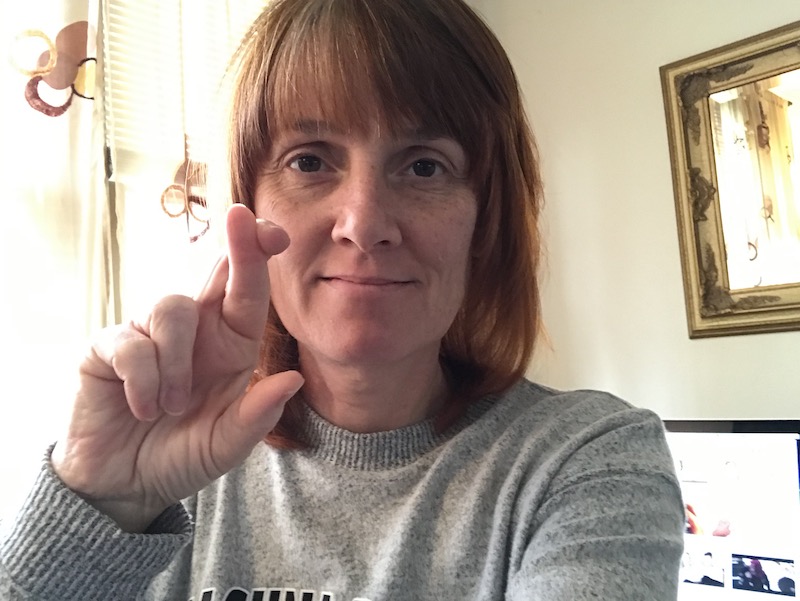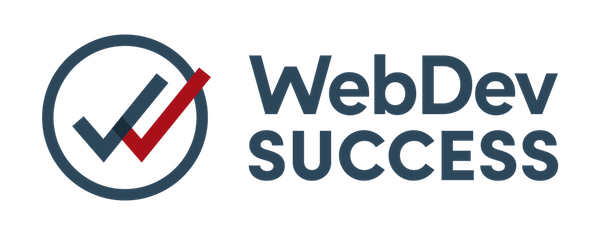
Over the past few weeks, I’ve been helping someone who owns a website development agency.
He brings in new business and manages all the projects for his agency. But he’s not a website developer himself. So he contracts out that work. And he’s had some really bad luck.
He hired another agency’s developer who committed to the work but produced a crap website with problems the developer couldn’t fix. They were stalled because the website was far from being ready for client viewing.
My agency friend was then stuck looking for a WordPress expert (that’s me!) who could finish the job quickly and without drama.
That’s exactly what happened.
I accomplished the tasks the original developer said were impossible. No magic tricks. I just applied my expertise and experience.
Then I handed the finished product back to the agency owner so his developer could go live with the website.
A week later, my agency friend returned with a message from the original developer’s agency.
We can’t launch the site because of her changes.
Now, based upon this response, you might be wondering if I performed some sort of witchcraft on the website. Some crazy customizations that no one but me could decipher.
But I didn’t. No custom code. No new plugins were added. I just figured out how to use the tools available within the website dashboard.
So what do you think is going on here?
Here’s what I think.
I whooped their ass in website development and now they’re embarrassed.
But instead of standing tall and straightening their tie by launching the website and being of service to their client, the person on the other end washed their hands of the entire project.
My agency friend has worked with me before. He knows I edit websites within the limits of the WordPress dashboard. He knows I never hack into the code because doing so makes the website difficult for other people to edit. So, he brought it back to me to launch the website. This is no problem for me but I don’t work for free.
The impact of this behavior on the reputation of my industry bothers me. A lot.
I might sound harsh, but after almost 10 years as a WordPress expert, I have seen this happen hundreds of times.
I have seen developers who can’t finish projects they start, so they say the project’s impossible. Or, more often, they ghost leaving their client with a dysfunctional website.
Clowntown website developers and hack agencies are a dime-a-dozen.

I see their work (and their forwarded emails) when new clients come to me with finicky websites that they don’t know how to update. Website disasters like the one I’ve just described show up at my agency regularly.
Occasionally, developers are hostile during a breakup; threatening damage to the website or blocking access when the client says, “We’re done.”
More often, this aggressive behavior comes out passively. Spurned developers drag their feet and generally resist the process of transitioning client assets to the new agency.
Other times, they pull out the fear card and threaten the client with,
Your website is going to lose ranking on Google if you leave us now.
Or,
Your website will not be secure if it’s not hosted on our server.
That’s why it doesn’t surprise me that introducing myself as a Website Developer makes some people think of that iconic swindler: the used car salesman.
Clowntown, we have a problem.
We have not agreed on the best practices in website development. Here’s what I think they should be:
1. Tell the truth.
If you don’t know how to do something, then say so. It’s really okay to not know everything. Honesty pays off in many ways. Customer loyalty is one of them.
2. Be transparent.
If you are outsourcing some or all of your project, then talk about it in your proposal.
3. Outsource some of your work
You are just not that good at everything. Your client will get a better finished product when you outsource the things you’re not good at. I outsource graphic design, branding, and advertising. I even outsource some things I am good at like copywriting because I can’t deliver copywriting quickly when I’m the one doing the writing.
4. Encourage your clients to own their digital assets.
Domain name. Hosting account. Social profiles. Do not assign yourself ownership of these important properties. Don’t ever be in the position of declining your client access to their own website files because you put them on your own server.
5. Complete projects.
Be prepared to provide a full refund if you can’t complete a project. Or, pay out of your own pocket to make sure somebody gets the work done. I’ve done both.
6. Part ways with dignity.
Make it easy to break up with you. Why would you want to hold a client and their digital property hostage? My parting words are always, “Thank you for trusting us with your business” and “We will be here if you need us in the future.”
7. Get paid faster.
Who said 50% deposit and 50% upon completion was a good idea? Not me. Instead, get a 1/3rd deposit, 1/3rd at 30 days, and the remaining 1/3rd upon project completion. This approach ensures you are paid for 2/3rds of your work fairly quickly and prevents client foot-dragging near the end of the project.
8. If your client wants a duck, then give them a duck.
Don’t force your big (expensive) ideas on your client. They may end up committing with reservations. Your client will be on high alert for all the reasons why this was a bad idea and you will be thrown under the bus.
9. Make sure they know the duck poops.
Sometimes clients have bad ideas. Help them understand why it’s a bad idea to put a slider with 18 animated slides at the top of their homepage. They will make an informed decision; they might do it anyway, but their choice won’t be a reflection of your work.
10. Pick up after yourself.
Delete the slew of unused/unneeded plugins and themes on the website.
11. Sweat the small stuff.
Take the extra time to do the work correctly. Resize large images before uploading them to the website. Avoid uploading images of 1MB or larger. Details matter.
12. Have someone else test your work before delivering your finished product.
You’ve been staring at the website for so many hours that you can’t see it anymore! Have someone you trust go through it while you watch. Have them click on every link.
13. Speak in ways you can be understood.
Take a minute to remember what it was like to learn website development. You didn’t know all of the terminology. Slow down and simplify your language for the sake of your client. It will pay off in overall better understanding on both sides.
14. Pick up the phone.
Email is not always appropriate. Especially if your client is upset or confused. Even when a client tries to have an important conversation with me via email, I will direct them to schedule a phone call with me.
15. Use instant video to explain and teach.
Instant video tools such as loom are powerful time-savers and effective in helping clients understand you. I use instant videos throughout my workday to efficiently respond to questions from my staff and clients. Answers which used to require lengthy written descriptions and annotated screenshot attachments are now a snap with instant video.
16. Be responsible for your mistakes.
If you messed up something, fix it on your own time. Don’t charge your clients for your mistakes.
17. Research and troubleshooting is a service.
Research and troubleshooting of problems is a normal part of our work. It’s not free. Help your client understand this aspect of our work as a service.
18. Build in a time-limited support period after the project launch.
Prevent the project from never ending. Make it clear how much time is available and what the cost of additional support will be.
19. Have a single point of contact at your client’s business.
Invited to the team meeting to brainstorm about the website? I will show up for this meeting just once. While I’m there, I explain why it’s important for them to have these meetings without me. A single point of contact with decision making authority is more efficient and less expensive.
20. Leave your company name off of the website footer.
Your client’s website is not your billboard–even if they do love you.
I’ve known about the problem with my industry for years and it has been going on for too long. I want to see the website development industry completely change. That’s why I’m saying this. I don’t want to be lumped in with tricky used car salesmen anymore. And I want people who are new to this kind of work to know best practices and apply them in their own work.
It’s not impossible. Clowntown, the problem can be fixed.
Comment or ask a question below.








